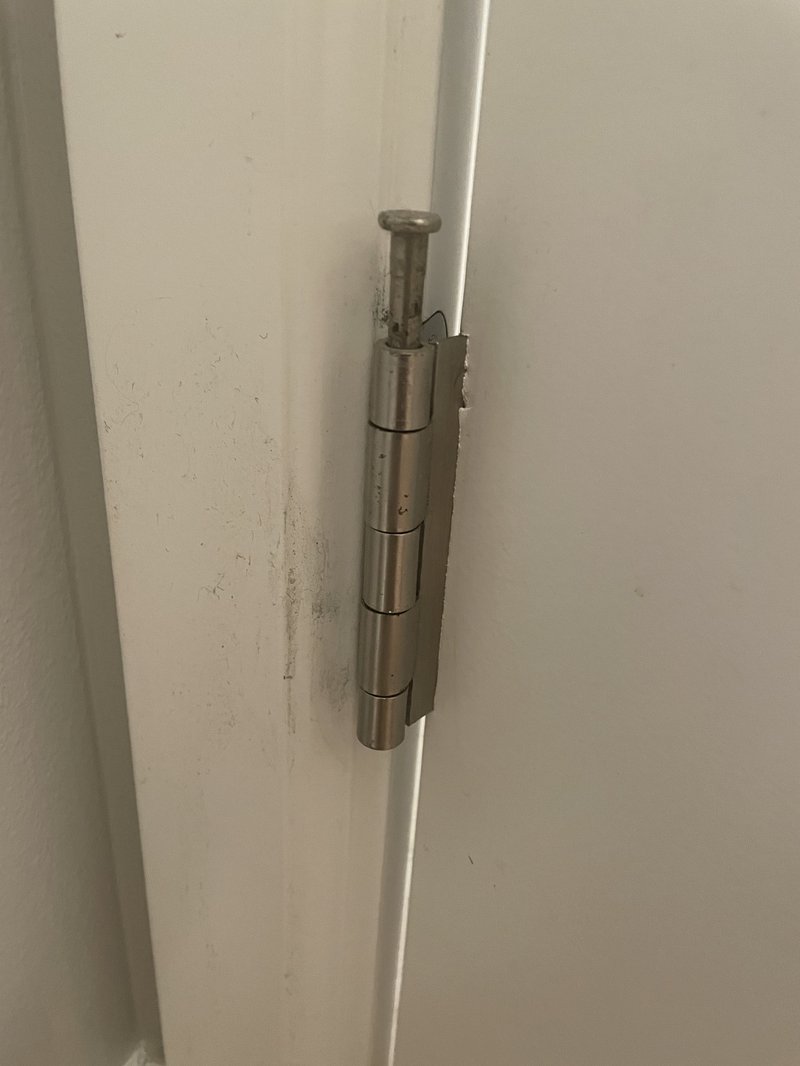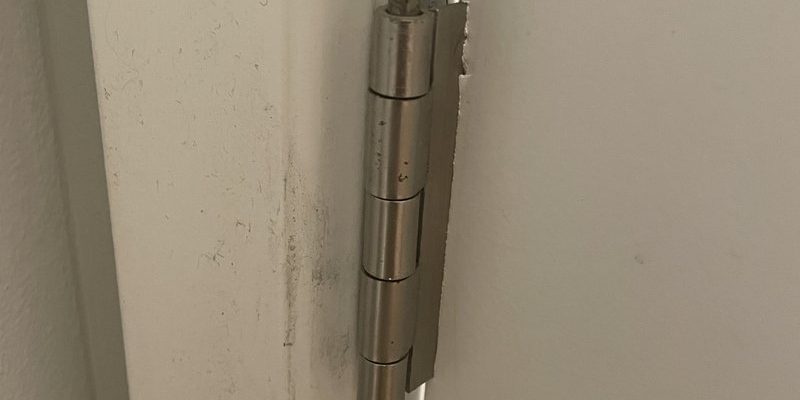
Understanding why your door hinge pin keeps rising out is crucial. It could be due to wear and tear, lack of lubrication, or even the way the door is hung. Each of these aspects can contribute to the pin’s stubborn behavior. Knowing the common reasons can help you troubleshoot the situation effectively, keeping your door functioning smoothly.
Let’s dive into the most common reasons your door hinge pin might be on a rebellious journey up and out.
1. Wear and Tear on the Hinge
Over time, door hinges can suffer from wear and tear. Just like any other mechanical component, constant use can lead to a breakdown. The hinge may become loose, making it easier for the pin to rise out of its place.
If you think about it, every time you open and close the door, you’re putting stress on the hinges. This can cause them to become misaligned or damaged. If the pin itself has become worn down, it won’t hold as securely, leading to that annoying rising effect.
To check if wear is an issue, do a visual inspection of the hinge. Look for signs of cracking or bending. If the hinge looks rough, it might be time to consider a replacement.
2. Loose Screws
Another common reason for a rising hinge pin is loose screws. If the screws that attach the hinge to the door or door frame are loose, they can allow the hinge to shift slightly. This shift can pull the pin out of its socket, causing it to rise.
Here’s the thing: Not all screws hold equally over time. They can gradually loosen with repeated use, vibrations, or just due to a poor initial install. Gently pushing on the door can often lead to noticeable movement in the hinge if the screws are loose.
To remedy this, grab a screwdriver and tighten any loose screws you find. It’s a simple fix that may bring your door back into alignment.
3. Insufficient Lubrication
Do you remember the last time you applied lubricant to your door hinges? Lack of lubrication can cause the hinge to function poorly, leading to stress. If the door isn’t moving smoothly, it can affect how the pin sits in the hinge.
Think of it like a bike chain. If it’s dry and rusty, it won’t move smoothly, and that can lead to parts popping out unexpectedly. The same principle applies to door hinges.
To fix this, use a lubricant specifically designed for door hinges. Just a few drops can go a long way in ensuring smooth operation. Plus, this should help reduce noise when opening and closing your door.
4. Misalignment of the Door
If your door isn’t properly aligned, it can create additional stress on the hinges, causing the pin to pull out more easily. Misalignment might happen if the door has shifted over time or if it was installed incorrectly to begin with.
You might be wondering how to tell if your door is misaligned. A simple test is to look at the gap between the door and the frame. If it’s uneven, that’s a sign of misalignment.
To fix this, you may need to adjust the hinges or even shim them if they’re too far out of place. This can help redistribute the weight of the door and allow the hinges to function properly.
5. Environmental Factors
Believe it or not, environmental factors can also play a role in your door hinge pin issues. Changes in humidity and temperature can cause wood to expand or contract. This often affects the overall structure of the door and how it fits into the frame.
For example, in humid conditions, wooden doors tend to swell. When this happens, the pressure on the hinges can increase, leading to the pin rising out as the hinge tries to accommodate the change.
Keeping your home at a stable temperature and humidity level can help minimize these effects. However, if the door is already swollen, it might need to be sanded down to fit properly again.
6. Overloading the Door
It might sound a bit surprising, but overloading your door can also lead to the hinge pin issue. If you hang a heavy item on your door, like a large decorative piece or even a hanging organizer, it can put extra weight on the hinges.
Here’s a relatable analogy: Think of it like carrying too many groceries in one trip. If the bag gets too heavy, it can start to rip and spill. The same principle applies to door hinges. When they’re bearing too much weight, the pin might struggle to stay in place.
To resolve this, consider redistributing the weight. Make sure not to place too many heavy items on the door so that the hinges can handle the load without stress.
7. Incorrectly Sized Hinge Pin
Lastly, the hinge pin itself might not be the right size for your hinges. If someone replaced the pin without ensuring it matched the original specifications, it could lead to instability. An improperly sized pin can slip out easily because it doesn’t fit snugly.
You may notice the pin is shorter or thinner than it should be. This can make it harder for the hinge to secure the door properly.
To check this, remove the hinge and measure the pin. If it doesn’t match the standard size for your hinges, it’s worth considering getting the correct type installed.
Dealing with a door hinge pin that keeps rising out can be irritating, but identifying the cause doesn’t have to be a headache. Whether it’s wear and tear, loose screws, insufficient lubrication, misalignment, environmental changes, overloading, or an incorrectly sized pin, knowing what to look for can empower you to tackle the issue head-on.
A little maintenance can go a long way in keeping your doors functioning smoothly. After all, a well-hung door is not just about aesthetics; it’s about convenience and ensuring everything in your home runs like a well-oiled machine. So, grab your tools and get that door back in shape!
